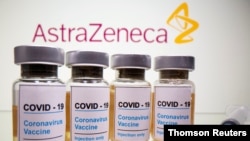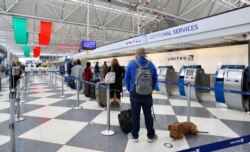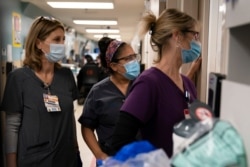AstraZeneca said early Monday that clinical trials of its COVID-19 vaccine in Britain and Brazil have shown it is “highly effective in preventing COVID-19" without “hospitalizations or severe cases of the disease” in any of the trial’s volunteers.
The England-based pharmaceutical company says the vaccine was 70% effective overall, but there were differences between two dosing regimens. One was 90% effective. The other was 62%.
“More data will continue to accumulate, and additional analysis will be conducted, refining the efficacy reading and establishing the duration of protection,” Astra Zeneca said in a statement Monday.
“These findings show that we have an effective vaccine that will save many lives.” Professor Andrew Pollard, chief investigator of the Oxford Vaccine Trial at Oxford, said in a statement.
AstraZeneca said it “will seek an Emergency Use Listing from the World Health Organization for an accelerated pathway to vaccine availability in low-income countries. In parallel, the full analysis of the interim results is being submitted for publication in a peer-reviewed journal.”
Drugmakers Pfizer and Moderna have also announced initial results from late-stage trials showing their vaccines were nearly 95% effective. On Sunday, countries begin laying out plans to distribute COVID-19 vaccines, with Germany and the United States preparing to vaccinate some populations as early as next month.
German Health Minister Jens Spahn told reporters Sunday that there “is reason to be optimistic” that a vaccine would be approved in Europe before the end of the year, and that after approval, vaccinations could begin “right away.”
The United States has set preliminary plans to begin vaccinating some groups as early as December 12, two days after the U.S. Food and Drug Administration is scheduled to review the Pfizer vaccine.
In the U.S., health care workers, who have been hard-hit by COVID-19, would be among the first to receive a vaccine.
The United States has set preliminary plans to begin vaccinating some groups as early as December 12, two days after the U.S. Food and Drug Administration is scheduled to review the Pfizer vaccine.
At the G-20 summit this weekend, 20 of the world’s richest nations’ leaders vowed to work together to ensure that vaccines against COVID-19 will be made available to the most poor and vulnerable populations.
U.S. medical workers and public health officials are pleading with Americans to stay home for Thanksgiving, a holiday when many Americans travel to be with their families and friends. Americans have been warned that a negative COVID-19 test does not absolve them from passing on the virus, as it can be picked up on the way to their destinations. And health experts say the COVID-19 tests are not 100% reliable.
Photographs of packed U.S. airports have been posted on social media.
The Associated Press reports that China has imposed new lockdowns on three cities — Shanghai, Tianjin, Manzhouli — where a handful of COVID-19 cases have reemerged.
California Governor Gavin Newsom and his family are in quarantine after three of his children were exposed to a Highway Patrol officer who tested positive for COVID-19.
More than 58 million people around the world have been infected with the coronavirus, the Johns Hopkins Resource Center reported early Monday.
The U.S. continues to lead the world in infections with more than 12 million cases, followed by India with 9 million infections and Brazil with 6 million.
The virus has claimed more than 1.3 million lives. More than a quarter million of those deaths were in the U.S.









